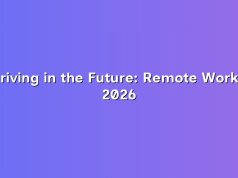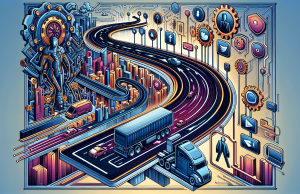The world has changed, and so has the workforce. Gen Z—our most educated, tech-savvy generation—has big dreams and even bigger aspirations. But when it comes to turning those ambitions into a reality, they’re facing a harsh reality check: a disconnect between what they’ve learned and what employers actually need. From classroom to cubicle (or wherever), the transition isn’t as smooth as we thought.
It’s not just a rite of passage; it’s a broken pipeline. And it’s threatening to leave a whole generation stuck in the middle of this education-to-employment chasm. Here’s why this gap exists—and, more importantly, how to fix it.
What’s the Problem? Let’s Start With the Basics
First things first: Gen Z is smart. And not in a “they’re good with their phones” way. We’re talking about a generation that’s academically sharp, digitally fluent, and eager to succeed. They’ve been trained to adapt, pivot, and innovate. But, here’s the thing—schools aren’t teaching them what they actually need to know to land their first (or second) real job.
1. Schools Are Stuck in the Past
The biggest issue here? Schools are still largely stuck in the old “lecture, test, repeat” cycle. While it’s a nice model for knowledge acquisition, it doesn’t do much for real-world problem-solving or the kind of agility today’s workplaces require. Gen Z is walking out of school with a diploma—but also a massive skills gap.
Let’s talk tech for a second. Gen Z is the first generation to grow up with AI, virtual assistants, and the gig economy. And while they’ve got digital literacy down, schools are still playing catch-up on the hands-on tech training that actually matters. From data science to digital marketing, real-time skills are often left out of the equation. This isn’t a “they should have learned more” issue—it’s a “the system needs to evolve” issue.
2. Parents Are Still Pushing the ‘Go to College’ Narrative
Then there’s the parental pressure. Many Gen Z’ers are still being nudged (or downright pushed) into traditional career paths—get a degree, climb the corporate ladder, and all that jazz. But let’s be real: the job market is more complicated than that. The gig economy, remote work, side hustles—these aren’t just buzzwords. They’re the future.
Parents often don’t understand how drastically work is changing, which can create a disconnect between what Gen Z thinks they should be doing and what’s actually available. Instead of exploring more modern, flexible career paths like freelancing or starting their own business, many Gen Z’ers are locking themselves into industries that are outdated or don’t offer the stability they thought they would.
3. Employers Are Asking for ‘Experience’—But Where Do You Get It?
Now, let’s talk about the elephant in the room: the classic “3-5 years of experience” job requirement. How are fresh graduates supposed to meet that demand? Gen Z is expected to come into a job with experience they don’t have. It’s a paradox, right? They’ve been told that getting a degree is the key to success, but now they’re being told that without real-world experience, it’s basically useless. That’s a bitter pill to swallow.
The real kicker here is that employers often want very specific skills. We’re talking about experience with specific tools, platforms, and even ways of thinking that aren’t taught in traditional academic settings. Add in that many entry-level roles are being replaced by automation or AI, and it’s no surprise that Gen Z is frustrated.
4. Economic Uncertainty Isn’t Helping
Gen Z’s job market is anything but steady. They’re entering a workforce where companies are shrinking, AI is taking over, and hybrid work arrangements are often being used as an excuse to increase expectations. Despite their tech-savviness, many Gen Z workers are walking into environments where job security is a thing of the past. And guess what? They’re doing it with student loans hanging over their heads.
The economic challenges, compounded by fears about automation, remote work pressures, and constant change, make this an especially challenging time to be entering the workforce.
So, How Do We Fix This? The Roadmap Forward
We can’t just sit here and watch Gen Z flounder. There are ways we can fix this pipeline. It’s not about magically changing the entire educational system overnight (though, wouldn’t that be nice?). It’s about tackling this from multiple angles and creating a better transition from school to work. Here’s how:
1. More Real-World Learning: Schools Need to Step Up
Schools need to rethink their approach to career preparation. The classroom should become a place for hands-on learning, problem-solving, and real-time collaboration. Instead of focusing purely on theory, students should be working on live projects that mimic the actual demands of the industries they’re entering. Want to be a digital marketer? Work with real companies to craft campaigns. Aspiring engineers? Build prototypes. It’s all about getting students to work on actual problems—not hypothetical ones.
2. Mentorship: The Bridge Gen Z Needs
The absence of real-world guidance is a major barrier for Gen Z. This is where mentorship programs come in. Pairing students with professionals who can help them navigate the shifting job landscape is a game-changer. Mentors aren’t just for giving career advice—they’re there to help mentees understand industry trends, the skills they need to develop, and even how to get their foot in the door. Mentorship helps bridge the gap between what’s learned in the classroom and what’s expected in the workplace.
Employers need to take ownership here. Building mentorship programs within organizations will allow Gen Z employees to learn on the job while being supported by someone who’s been in the trenches.
3. Creating a ‘No Experience Required’ Mentality
It’s time for companies to stop fixating on the “experience” question. Of course, experience matters, but not at the expense of potential. Gen Z is hungry to learn, and employers should give them opportunities to build skills on the job. Internships, apprenticeships, and entry-level roles should focus on skill-building, not just resumes.
Companies can implement paid internship programs that allow Gen Z workers to “earn while they learn.” The key here is flexibility: the jobs of tomorrow aren’t rigid and don’t follow the traditional career ladder.
4. Encouraging Side Hustles and Freelance Careers
Let’s get real—Gen Z loves the gig economy. They want to hustle, work independently, and create multiple streams of income. Instead of pushing them to fit into one rigid career path, employers can encourage side hustles, freelance projects, and entrepreneurial endeavors. Offering resources, connections, and even time for Gen Z workers to pursue side gigs can boost creativity, productivity, and satisfaction—while making sure they’re learning how to navigate this new world of work.
The Bottom Line
Gen Z isn’t lazy or unprepared; they’re just navigating a workforce that hasn’t adapted to their needs. To make sure they can thrive, we need to embrace mentorship, rethink educational curricula, and open up job markets that recognize skill and ambition over experience. The future workforce is full of potential—let’s give them the tools to succeed.
How is your organization supporting Gen Z in this transition? Share your insights below or get in touch with us for guidance on how to better integrate this generation into your workforce.




























